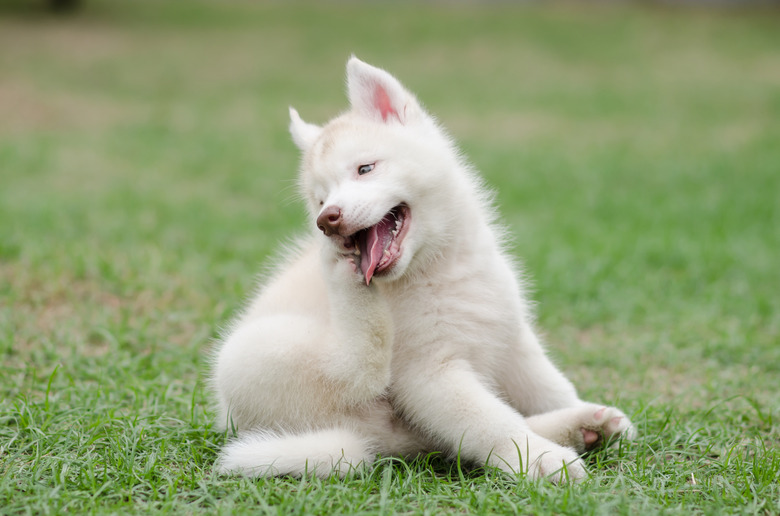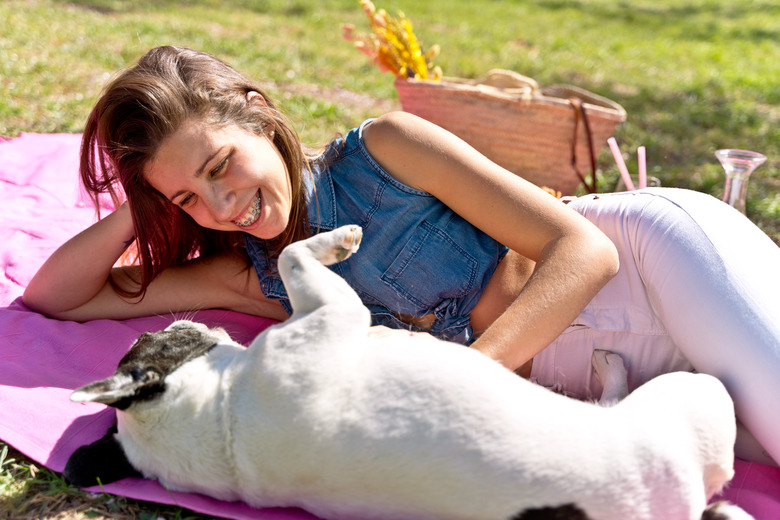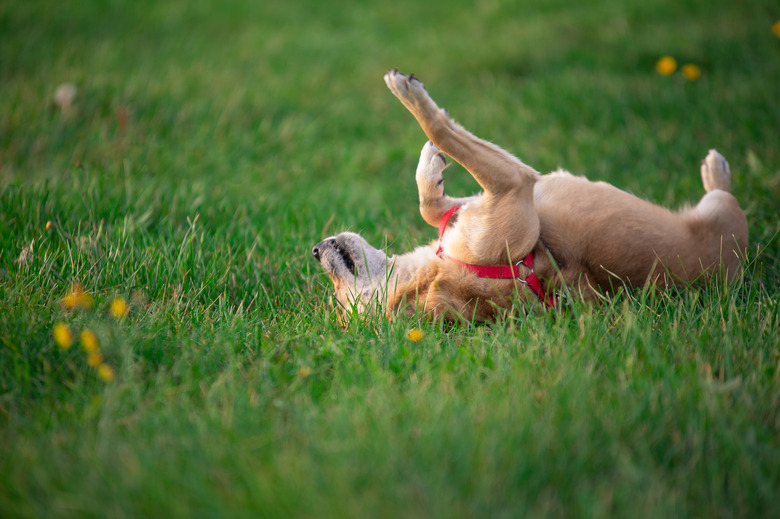Can Peroxide Kill Fleas?
Fleas are not only a nuisance for both you and your dog but their bites can be painful and may lead to further complications. We spoke with Dr. Shagufta Mulla, a veterinarian with a DVM degree from Colorado State University with 20 years of experience as a small animal veterinarian about whether peroxide can kill fleas. Here's what we learned: While hydrogen peroxide may kill fleas by drowning them or damaging the protective layer that keeps their bodies from dehydrating, it can irritate skin and may bleach or discolor your dog's fur. Avoid putting hydrogen peroxide on your dog, though it can still play an important role in fighting a flea infestation.
Get to know your enemy: the flea
Get to know your enemy: the flea
To better understand how to get rid of fleas, you first need to understand a little bit about them. This will help you not only kill fleas that are on your dog but also banish them from your home entirely.
Fleas are small, wingless insects that live off the blood of mammals, like your dog. Your dog may bring home a couple of fleas from their visit to the local park or from playing with an infested dog at doggy day care. Just two days after her first meal, a female flea will start to produce and lay eggs. A single adult flea will lay approximately 40 eggs every day. Before long, a couple of fleas can turn into a full flea infestation both on your dog (and other pets in the household) and in your home.
Is hydrogen peroxide safe for a dog's skin?
Is hydrogen peroxide safe for a dog's skin?
No, hydrogen peroxide is not safe for a dog's skin. It can cause skin irritation and discomfort.
How to get rid of fleas in your home
How to get rid of fleas in your home
Just because hydrogen peroxide isn't recommended for use on your dog, that doesn't mean it can't help you kill fleas and address the problem. Its safest role in the battle against fleas is for washing items like bedding, carpet, and upholstery.
To kill fleas completely and once again enjoy a flea-free home, you will need to disrupt their life cycle by killing both the larvae and adult fleas for at least three months in a row.
Use hydrogen peroxide to wash your pet's bedding and other machine-washable materials every week. They need to be washed in hot water with 1 cup or more of hydrogen peroxide to kill fleas and their eggs. This will help to remove any odors and blood specks from flea bites too.
Baking soda can be used to clean larger surfaces where fleas may be hiding but aren't machine washable, including carpet, rugs, and cushions. It works to kill fleas in their many life stages by dehydrating them. This includes flea eggs, larvae, and adult fleas.
To use baking soda, sprinkle it generously on the surface that you are trying to clean. Wait at least 30 minutes before vacuuming the area thoroughly. "When you are finished, change the vacuum bag or empty the vacuum chamber and take the trash out after this or else the fleas can get out and get back into your home," says Dr. Mulla.
Home remedies to remove fleas from your yard
Home remedies to remove fleas from your yard
Another area of the home that pet owners may forget to address when faced with a flea problem is the backyard. Fleas live in tall grass and dirt. You could purchase a commercial-grade flea killer for your yard to help kill fleas, but they can be dangerous for your dog and should never be used when pets are in the yard.
One natural flea solution you may want to use in your yard is USDA-certified diatomaceous earth. When looked at through a microscope, it is made up of many sharp-edged particles that will effectively kill insects like fleas. It's nontoxic, and unlike hydrogen peroxide, there is no risk of bleaching. Suppliers that carry feed or garden products will also carry food-grade diatomaceous earth. Sprinkle this natural flea killer in your dog's favorite areas outdoors.
Another natural solution for flea control outdoors is to run a water sprinkler regularly. However, you will want to choose either diatomaceous earth or the sprinkler, not both. "Diatomaceous earth is not effective when it's wet," says Dr. Mulla.
Treat your dog to kill fleas and provide relief from itching
Treat your dog to kill fleas and provide relief from itching
Bathe your dog weekly in warm water and use a flea comb to remove fleas. You can also use dish soap during bath time. Follow your veterinarian's advice concerning the use of spot-on flea treatment, flea shampoo, or anti-itch treatment for any irritation on your dog's skin caused by an allergic reaction to the flea bites. They can also suggest an oral or topical flea preventative. "In some climates, flea control is needed year-round to keep these pests away," says Dr. Mulla.
The bottom line
The bottom line
Hydrogen peroxide is useful for cleaning your home during a dog flea infestation. Hydrogen peroxide is not safe to put directly on a dog's skin because it can cause skin irritation and discomfort. But it can be used in washing and cleaning. Consult with your veterinarian for effective products to keep your dog healthy and flea-free.


